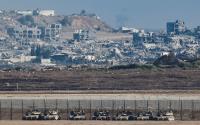2 February 2007Alan Johnson
In 1815, Mt Tambora in Indonesia ejected 160 billion tons of ash into the atmosphere - an explosion so cataclysmic that inhabitants of the eastern US and western Europe didn't see the sun again for almost a year.
The change in climate was dramatic: the following year, "the year without summer", failing crops meant 80,000 people died of starvation.
Today's threat of climate change is not quite so dramatic but it could be more devastating. A report published by the Intergovernmental Panel on Climate Change today shows that we need to take action if we don't want the worst-case scenario to materialise.
With rising sea temperatures and melting ice caps, we should all be thinking about what we can do individually to preserve the planet for future generations.
But we need to look beyond installing low energy light bulbs and turning the heating down. We need the next generation to think about their impact on the environment in a different way. That's why next week we will propose reforms to the school curriculum for all 11 to 14-year-olds that should provide opportunities to study issues that bring to life our impact on the planet.
I want sustainable development to be given a stronger focus and for it to be covered as a key concept in the new-style geography syllabus.
If we can instil in the next generation an understanding of how our actions can mitigate or cause global warming then we lock in a culture change that could, quite literally, save the world.
Importing food from the other side of the world and unnecessary airplane travel have become significant sources of CO2 pollution and children should be aware of these consequences.
Similarly, the importance of reducing fossil fuels and the effects of shifting clothes manufacturing to developing economies are all issues worth of study and debate in our classrooms.
Children have a dual role as consumers and influences. Educating them about the impact of getting an extra pair of trainers for fashion's sake is as important as the pressure they put on their parents not to buy a gas-guzzling family car.
I'm proud that the UK has one of the best records in tackling global warming, but serious threats to the planet remain. There can be no more important subject worthy of study in our schools today.
Alan Johnson is the Education Secretary
http://comment.independent.co.uk/commentators/article2208225.ece






